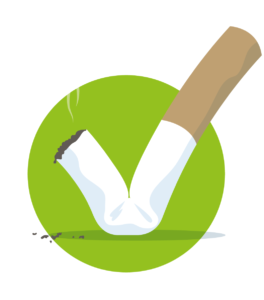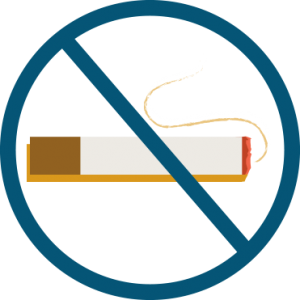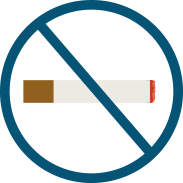Congratulations on your news!
If you smoke, quitting is one of the first steps you can take towards having a healthy pregnancy.
Most mums know that smoking whilst pregnant isn’t good for them or their baby – but that doesn’t make it easier to quit. And pregnancy can be a stressful time, especially with everyone giving you different advice.
Hopefully this page will provide you with clear information on the harm smoking is causing to you and your baby and why quitting is so important for you both.
You and Your Baby are Connected
 Your baby depends on you for everything – you supply your baby with food, oxygen and nutrients to enable them to grow.
Your baby depends on you for everything – you supply your baby with food, oxygen and nutrients to enable them to grow.
What you put into your body will affect the growth and health of the baby. This means the toxins and chemicals which enter your body from smoking, or second-hand smoke, will pass from your bloodstream, through the umbilicial cord and then placenta, directly to your baby’s bloodstream
Unfortunately your baby is not protected from cigarette smoke whilst in the amniotic sac (bag of fluid made of membranes).
If you smoke during pregnancy, when your baby is born it will go through nicotine withdrawal. This can make them very stress and irritable, and you may struggle to stop them crying.







